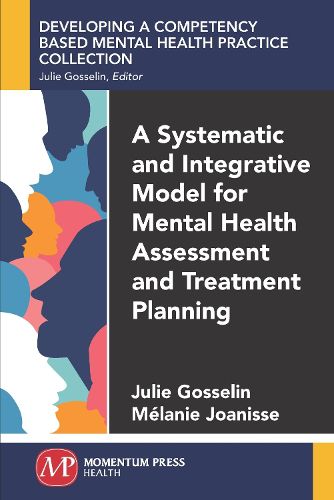Readings Newsletter
Become a Readings Member to make your shopping experience even easier.
Sign in or sign up for free!
You’re not far away from qualifying for FREE standard shipping within Australia
You’ve qualified for FREE standard shipping within Australia
The cart is loading…






This book sets the stage by providing a clear, systematic, and integrative model for mental health assessment and treatment planning that can be used in a variety of clinical settings, with a diverse adult clinical population. The authors advocate for the importance of considering all aspects of evidence-based practice (i.e., best available research, clinician’s expertise, and experience, as well as clients’ preferences and idiosyncrasies) when conducting assessments and delivering psychological treatments. Special attention is also given to the interdisciplinary aspects of delivering mental health care in today’s fast-paced environments. If you are a seasoned clinician or a beginner therapist, you will surely find this book useful because it provides a general map that can be used regardless of your specific theoretical orientations. The applied nature of the content makes it easy and valuable for readers who wish to apply psychology integration to their own practice. Specifically, case vignettes have been developed to help readers gain a better understanding on how to apply the integrative interprofessional framework into their practice. Finally, professors and supervisors will also find this book worthwhile as the authors incorporated a chapter on the supervision and evaluation of assessment and treatment planning competencies.
$9.00 standard shipping within Australia
FREE standard shipping within Australia for orders over $100.00
Express & International shipping calculated at checkout
This book sets the stage by providing a clear, systematic, and integrative model for mental health assessment and treatment planning that can be used in a variety of clinical settings, with a diverse adult clinical population. The authors advocate for the importance of considering all aspects of evidence-based practice (i.e., best available research, clinician’s expertise, and experience, as well as clients’ preferences and idiosyncrasies) when conducting assessments and delivering psychological treatments. Special attention is also given to the interdisciplinary aspects of delivering mental health care in today’s fast-paced environments. If you are a seasoned clinician or a beginner therapist, you will surely find this book useful because it provides a general map that can be used regardless of your specific theoretical orientations. The applied nature of the content makes it easy and valuable for readers who wish to apply psychology integration to their own practice. Specifically, case vignettes have been developed to help readers gain a better understanding on how to apply the integrative interprofessional framework into their practice. Finally, professors and supervisors will also find this book worthwhile as the authors incorporated a chapter on the supervision and evaluation of assessment and treatment planning competencies.